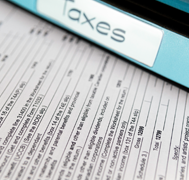Debt Consolidation 101 – Dealing with CRA Collection Action
 Have you recently received a phone call or a letter from the CRA regarding your existing debt?
Have you recently received a phone call or a letter from the CRA regarding your existing debt?
That’s because, as of September 2020, the CRA has resumed its debt collection activities. The CRA has confirmed that it is reconnecting with taxpayers to re-evaluate their respective financial situations and discuss debt repayment options.
While no legal actions are being taken (at this point), it is good to know about what actions can the CRA take and what options do you have.
What Happens if You’re Unable to Pay?
If you have received a notice from the CRA and are unable to repay the debt, CRA is authorized to take certain actions that can have serious financial and/or legal consequences for you.
As these are unprecedented times and many Canadians are facing financial distress, the CRA has temporarily stopped legal actions.
For when legal actions do resume, the CRA normally will not take legal action until 90 days after mailing you the notice of assessment or reassessment.
If you do not make timely payments or agree on a repayment arrangement, the following actions can be taken:
Wage garnishment is done when tax debt goes unpaid. The CRA uses your federal income, GST/HST credits, and/or income tax refunds to obtain the payments.
II. Asset Liens
It is also possible for the CRA to obtain a writ or memorial to seize and sell the assets you own. These include your properties, your vehicles, and other assets.
III. Third-Party Assessments
In addition to garnishing wages and seizing assets, the CRA can hold a third party legally responsible to pay your tax debt. These include your spouse, business partner, or even a financial institution.
Should You Look into Debt Consolidation?
So, if you’re not able to make the payment and want to avoid further action from the CRA, is debt consolidation a good option?
To answer this question, let’s define debt consolidation.
Debt consolidation is when you obtain a new loan or sign-up for a program that helps ‘consolidate’ a number of smaller loans, debts, and/or bills into one, single monthly payment.
There are a number of options you can look at depending on your situation. For instance, if you have equity in your home, you can obtain a second mortgage. This option offers low interest rates and preserves your credit.
Obtaining a second mortgage, by leveraging your home equity, is a very practical solution that many homeowners in Canada opt for.
Though, if a loan is not an option and you have multiple debt payments, you can look into a plan like a Consumer Proposal which can help you consolidate debt payments into one affordable monthly payment and ensure you are debt-free within 5 years.
At DebtCare, we have created a debt repayment calculator that can help you quickly and easily estimate how you can be out of debt in five years or less!
The Way Forward
So, with so many debt consolidation options, which one is right for you? Financial consultants, like DebtCare Canada, can help you analyze all of your options, discuss various strategies for repayment, and bring together the resources you need to resolve your debt issues.
Remember, when it comes to CRA debt, it is always good to have a proactive rather than a reactive approach.
Contact us, for a free consultation, by calling us on 1-888-890-0888 or visiting www.debtcare.ca.


